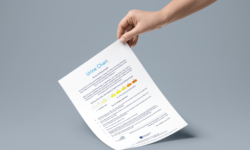As soon as December arrives it can feel like a race to get to Christmas without catching the many viruses that seem so prevalent each year. It’s natural to want to be at your best during the festive season, especially if you have plans to visit friends and family or live with a long term condition which can make you more susceptible to catching colds. So what can you do to help bolster your immune system and give yourself a boost?
There are many practical ways to keep yourself safe, no matter what else is going on in your life. And it’s not all about vitamin C. Simple good habits such as hand washing and drinking plenty of water contribute greatly toward our general health, and are our bodies’ best defence against those little nasty germs.
We outline some general good practices here, to remind you of how you can keep a little control in a world of constant change.

Drink Plenty of Water
It’s true that water is fundamental for maintaining our body’s functions such as maintaining healthy digestion, clear skin and brain function. In reality it’s the most important thing we can put into our bodies, but we often prioritise food over fluids. So why is water so important and what can you do to make small steps to drink more?
Water helps maintain a healthy level of absorption in the digestive system – if you don’t have enough fluid in your body you could suffer from constipation or bladder issues. The digestive system is vital as it helps transport the nutrients and fluids around the body to help your daily functions such as maintaining kidney health and supporting your immune system.
Water also helps the kidneys to perform their job of cleaning the blood, removing toxins and turning the waste into urine. If you aren’t drinking enough, your urine will be a dark yellow and you can feel more tired. Our urine chart can help you understand what a good level of hydration should look like when you pass urine.

Urine Chart
[BBC:065] Urine Chart
Do you know what colour your urine should be? A Urine Chart can help you determine whether you are drinking enough fluid, and whether you are dehydrated. Use the colour chart to help you manage your hydration levels.
You can also work out how much fluid you should take in each day using our Fluid Matrix . Find out more about the Importance of Hydration and how it can aid immune defence.
Keep Moving
Find a way to exercise that suits your body and your mood. It is easy to feel pressured to do lots of cardiovascular exercise, but anything that raises the heart rate a little is beneficial for your physical and mental health, which can positively influence your immune system.
Any movement can count – including walking, yoga, strength work or more vigorous activities like running, cycling, swimming or exercise classes. Choose something that suits your lifestyle and routine so that it becomes a regular part of your day. Exercise is a form of self-care as it’s great for your mind and your body – but it’s important to listen to your body and be sensible so that you avoid strain or injury. Find out more about how Pilates can help.
Remember that if you move more, you should drink more too!
Don’t Touch!
If you can, try to refrain from touching too many surfaces in public places. If you need to steady yourself of course you must use handrails, but you might wish to wear some suitable gloves to protect yourself from exposure to any germs on the surfaces you come into contact with. You can then confidently remove the gloves once you’re at your destination.
Touching your face is a very common habit that can add to the spread of germs very quickly. According to Research we touch our faces around 23 times per hour, and it’s areas such as the nose, eyes, mouth and hair which are most habitually touched.
Self inoculation is when you touch contaminated surfaces and then areas of the body where germs can take hold, introducing viruses to your own system. If you can limit the number of times you touch your face, you can reduce the chances of germs getting into your system.
Mental Health Matters
Physical health can be taken for granted, as can mental health. Germs affect us in many ways and most people have felt the mental impact of having a cold or illness, and having to stay socially distanced from others. This can take a negative toll on the body, and studies indicate that low mood can negatively affect the immune system.
According to Psychology Today, touching your face is a habit formed out of our need to de-stress or self-sooth. Our brains have nervous energy that needs processing, and a physical reaction such as fidgeting can help relieve that stress. Our faces are very sensitive to touch, which can be especially soothing due to the close proximity of the brain.
However it is best during flu-season to keep your hands impeccably clean, and away from your face if you can to protect yourself from germs.
Your mental health is vital to your general well-being and physical health – it’s not uncommon to struggle with your mental health if you’re living with a bladder or bowel condition. If you feel low, we urge you to seek help. Our article on How Having a Bladder or Bowel condition can affect your Mental Health discusses this in more detail.
It’s important to also get lots of fresh air, and make sure you see friends and family if you can, to help lift your mood. Plan some little treats for January so that you have something to look forward to. It could be as simple as a coffee with a friend, or walking a little further afield than usual. Nurture the soul, and your body too.
Get Plenty of Sleep
Sleep is one of the best ways to help your body repair and recover, so make sure you get as much rest as you can – the average adult needs between 7 and 9 hours each night. The CDC has published a guide to help you get the right amount of sleep for your age, with school age children requiring up to 12 hours per day.
As we get older, we require less sleep but it’s still vital toward helping our bodies function at their best each day. There is evidence to suggest that sleep helps to regulate our immune system to keep you at your best – all the more reason to get your head down early when you can.
Get out what you put in
There are studies that suggest that light drinking of polyphenolic-rich drinks such as beer and wine can have health benefits such as preventing the common cold from developing further in healthy adults. Further research however is required in this area, and we’d advise keeping well within the recommended 14 units per week and ensuring alcohol won’t affect any medication you are taking.
There are many assumptions and misconceptions around food and nutrition, so make sure you understand what you’re eating and maintain a good balance of fibre, leafy greens, proteins and carbohydrates in your diet. According to the British Nutrition Foundation, there are 10 vitamins and minerals which particularly support our immune system including Vitamin D which can be difficult to gain naturally during winter (as it’s generated by the skin when exposed to sunlight) and has been linked with IBS symptoms.
Keep your Hands Clean
We all managed to adopt good hand-washing hygiene habits during the pandemic, but are you keeping up with them? You should wash your hands using warm soapy water for at least 20 seconds and be sure to dry them with a clean towel or hand dryer, at regular intervals throughout the day.
Hand sanitizer can be used in place of handwashing, but can be less effective as it can reduce the number of microbes on your hands, but won’t remove visible dirt as efficiently – you can find out more from the Centre for Disease Control and Prevention. Remember that soap and water is best. You can remind yourself of good hand-washing techniques with our 6 step guide.
Everything in moderation
We don’t wish to sound like a broken record – but moderation is key to keeping healthy during the winter. Certain luxuries can take a toll on your body such as late nights and alcohol overindulgence, consistent dehydration and poor diet.
Short term, find out if you’re eligible for the Flu Vaccination on the NHS, or you can pay for this at your local chemist to help protect you from contracting seasonal influenza.
You may be doing everything you can already, in which case keep up the good work! But if not, if you start to make little changes each week you may be able to positively support your body and protect yourself from seasonal sniffles.
